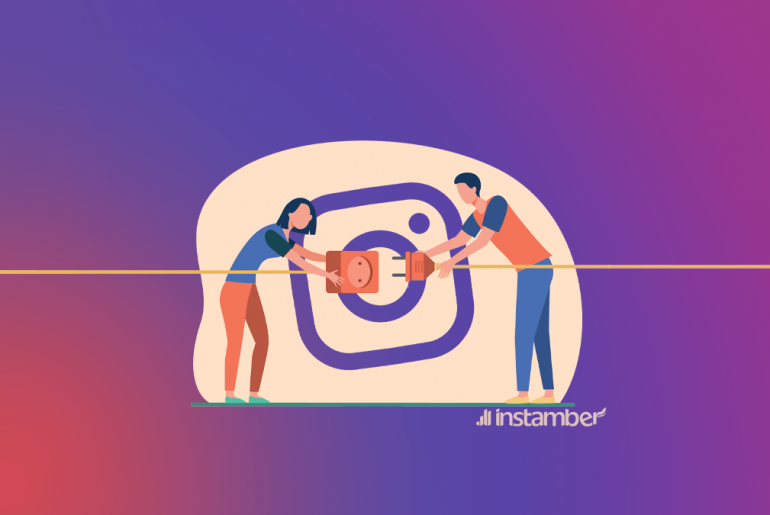In the ever-evolving landscape of software as a service (SaaS), marketing agencies face a unique set of challenges when it comes to promoting these products effectively. From navigating a saturated market to keeping pace with rapidly changing consumer preferences, the complexities of software promotion are numerous.
This blog post aims to explore the strategic approaches employed by SaaS marketing agencies to tackle these intricacies and drive sustainable growth for their clients.
Understanding the Unique Landscape of SaaS Marketing
The SaaS industry has experienced remarkable growth in recent years, fueled by the increasing demand for cloud-based solutions and the digitalization of businesses across various sectors. Experts predict that 85% of corporate applications will be SaaS-based in the next three years.
With this growth, the need for specialized SaaS marketing agency services has also risen significantly. A SaaS marketing agency is a firm that specializes in developing and executing marketing strategies tailored to the unique needs and challenges of software-as-a-service companies.
Yet, this rapid expansion has also led to a highly competitive market, making it increasingly challenging to stand out from the crowd. SaaS marketing agencies encounter a key obstacle in the ever-evolving nature of consumer preferences.
With technology constantly advancing, user expectations are continuously shifting, and marketing strategies that were once effective may become obsolete overnight. Staying ahead of these trends and adapting to changing consumer behavior is crucial for successful software promotion.
Furthermore, the dynamic nature of software promotion in the digital age presents its own set of complexities. The rise of social media, content marketing, and search engine optimization (SEO) has transformed the way businesses promote their products and engage with their target audiences.
6 Ways SaaS Marketing Agencies Help with Software Promotion
- Strategic Positioning and Brand Differentiation
In a crowded market, defining a unique value proposition is paramount for SaaS marketing agencies and their clients. Effective brand positioning and differentiation strategies can set a product apart from its competitors and resonate with the target audience.
Many leading SaaS marketing agencies often utilize in-depth market research and consumer insights to inform their strategic decision-making. By understanding the pain points, preferences, and behaviors of their target market, agencies can craft compelling messaging and positioning that speaks directly to their audience’s needs.
For example, consider the case of a SaaS project management tool that emphasizes its user-friendly interface and robust collaboration features. By positioning itself as a solution that streamlines teamwork and boosts productivity, the product differentiates itself from competitors that may prioritize advanced functionalities over usability.
- Content Marketing Tactics for SaaS Promotion
Content marketing has emerged as a primary driver for brand awareness and lead generation in the SaaS industry. By creating and distributing valuable, relevant, and consistent content, SaaS marketing agencies can attract and retain their target audience while establishing their clients as thought leaders in their respective niches.
Effective content marketing for SaaS promotion encompasses various formats, including blogs, videos, podcasts, whitepapers, and webinars. Different formats cater to various audience preferences and consumption habits, enabling agencies to diversify their content strategies and reach a broader audience.
Distribution channels play a crucial role in ensuring that the content reaches the right audience. Social media platforms, email marketing, and search engine optimization (SEO) are among the most commonly utilized channels for content distribution. Incorporating SEO best practices, like keyword research and on-page optimization, can enhance content visibility and improve clients’ search engine rankings.
- Data-Driven Marketing Approaches
In an era where data reigns supreme, SaaS marketing agencies are leveraging data analytics and customer feedback to inform their decision-making processes. By collecting and analyzing data from various sources, including website traffic, social media engagement, and customer interactions, agencies can gain valuable insights into their audience’s preferences, behavior, and pain points.
Implementing A/B testing and performance tracking is a key component of data-driven marketing. Through running controlled experiments and monitoring campaign performance, agencies can optimize their marketing strategies and identify the most effective tactics for driving conversions and retaining customers.
One example of a successful data-driven marketing approach can be found in the case of a SaaS accounting software company. By analyzing user data and feedback, the marketing agency identified a significant pain point: the complexity of tax compliance for small businesses.
Consequently, they tailored their content and messaging to address this specific need, resulting in a substantial increase in lead generation and customer acquisition.
- Partnerships and Collaborations
Strategic partnerships and collaborations have become increasingly important in the SaaS industry, as they offer opportunities for mutual promotion and customer acquisition. By aligning with complementary businesses, SaaS marketing agencies can tap into new audiences and leverage the reach and credibility of their partners.
Successful partnership initiatives often entail co-marketing campaigns, joint webinars or events, and cross-promotion on respective platforms. For example, a SaaS customer relationship management (CRM) tool and an email marketing platform may collaborate to offer a bundled solution, benefiting both companies through increased exposure and a more comprehensive product offering.
When selecting and nurturing partnerships, SaaS marketing agencies must consider factors such as alignment of values, target audience overlap, and the potential for long-term growth and collaboration. Through carefully vetting potential partners and fostering mutually beneficial relationships, agencies can maximize the impact of their partnership efforts.
- Customer Success and Retention Strategies
In the competitive SaaS landscape, customer retention is equally crucial as customer acquisition. SaaS marketing agencies recognize the importance of delivering exceptional customer experiences to drive retention and foster referrals, ultimately contributing to sustainable growth for their clients.
One effective strategy for customer success and retention is the implementation of customer success programs and proactive support mechanisms. These programs often involve dedicated customer success teams that work closely with clients to ensure they are maximizing the value of the software and achieving their desired outcomes.
Proactive support mechanisms, such as in-app guides, knowledge bases, and chatbots, can also enhance the customer experience by providing readily accessible resources and addressing inquiries or issues in a timely manner.
Consider the example of a SaaS marketing automation platform that implemented a comprehensive customer success program. By assigning dedicated success managers to each client, providing personalized onboarding and training, and proactively addressing concerns or roadblocks, the company saw a significant increase in customer satisfaction and retention rates.
- Adaptation to Technological Advancements
The rapid pace of technological advancements presents both opportunities and challenges for SaaS marketing agencies. Embracing emerging technologies, such as artificial intelligence (AI), machine learning, and automation, can enhance marketing effectiveness and provide a competitive edge.
AI and machine learning algorithms can be leveraged for personalized messaging, predictive analytics, and targeted advertising. By analyzing user data and behavior patterns, agencies can deliver highly relevant and personalized content to their audience, increasing engagement and conversion rates.
Chatbots and conversational AI have also become valuable tools in SaaS promotion, enabling real-time customer support, lead qualification, and personalized product recommendations. These technologies can streamline the customer journey and provide a seamless experience across various touchpoints.
As technology continues to evolve, SaaS marketing agencies must remain vigilant and adaptable, continuously exploring and integrating new tools and techniques to stay ahead. Through fostering a culture of continuous learning and innovation, agencies can position themselves as leaders in the field and effectively navigate the complexities of software promotion.
Conclusion
Navigating the complexities of SaaS software promotion requires a multifaceted approach that combines strategic positioning, content marketing, data-driven decision-making, collaborative partnerships, exceptional customer experiences, and a willingness to adapt to technological advancements.
By leveraging the strategies outlined in this blog post, SaaS marketing agencies can effectively differentiate their clients’ offerings, engage with their target audiences, and drive sustainable growth in the dynamic and highly competitive SaaS landscape.
As the industry continues to evolve, agencies must remain agile and proactive, continuously refining their approaches and embracing innovation. By staying ahead of the curve and delivering value to clients, SaaS marketing agencies can establish themselves as trusted partners in navigating the intricacies of software promotion.
Frequently Asked Questions (FAQs)
1. How do SaaS marketing agencies differentiate themselves in such a saturated market?
SaaS marketing agencies differentiate by defining unique value propositions, leveraging consumer data to tailor strategies, focusing on niche areas, and developing specialized expertise.
2. What role does content marketing play in SaaS promotion, and how can it be optimized for maximum impact?
Content marketing drives brand awareness, thought leadership, and lead generation for SaaS products. Agencies optimize content formats, distribution channels, and SEO tactics for maximum impact.
3. With the rapid advancement of technology, how do SaaS marketing agencies stay ahead of the curve in adopting new tools and trends?
Agencies foster a culture of continuous learning, proactively explore new technologies like AI and chatbots, analyze performance data, collaborate with partners, and remain agile in adapting to emerging trends.


